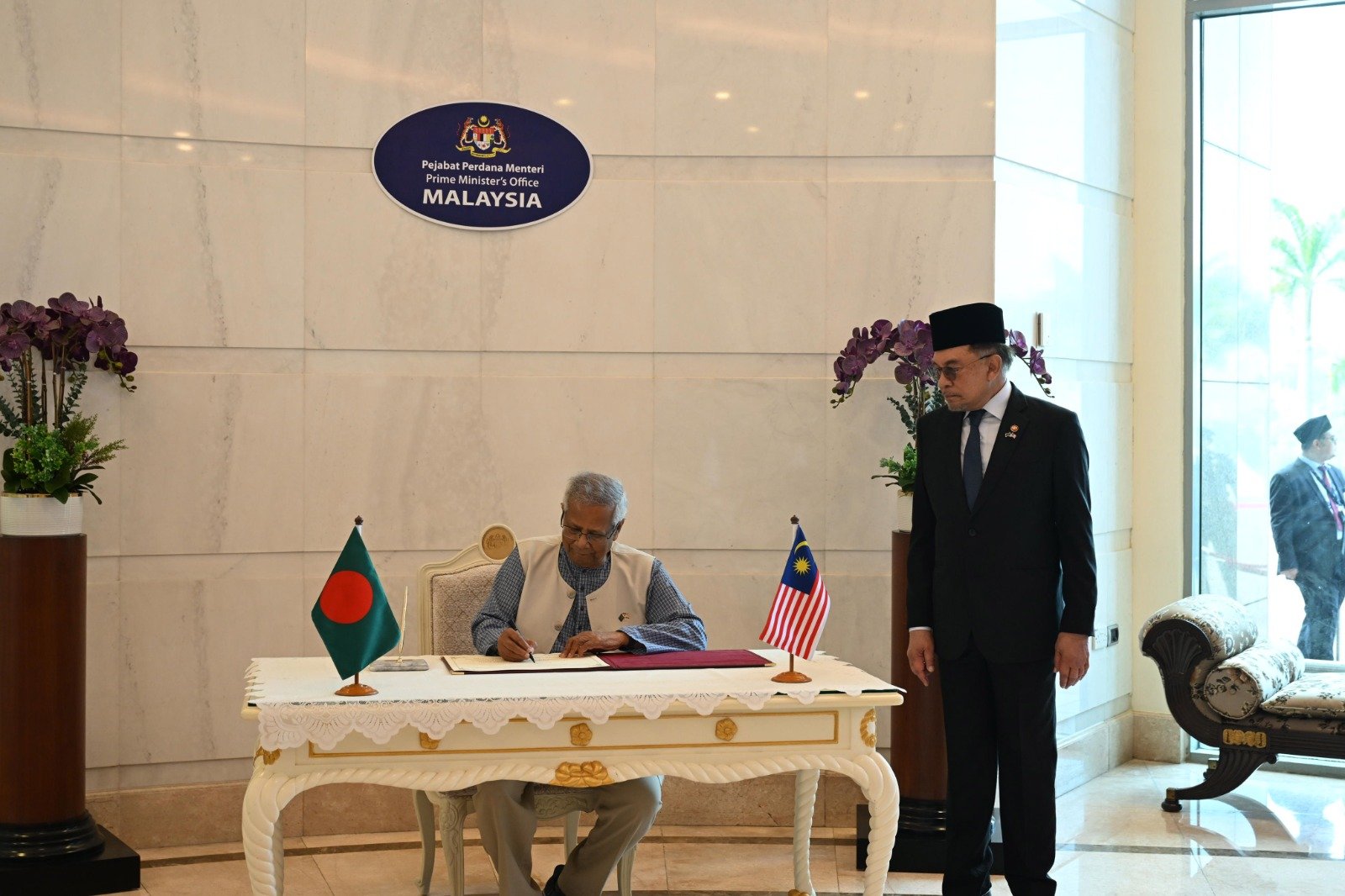News Flash
News Flash

DHAKA, Aug 14, 2025 (BSS) – Malaysia’s home minister Saifuddin Nasution bin Ismail has said Bangladesh’s Chief Adviser Professor Dr Muhammad Yunus’s just concluded Kuala Lumpur visit yielded positive developments in bilateral ties particularly in “strengthening strategic and high-impact multi-sector cooperation”.
In a Facebook post Ismail said Yunus’s official visit was “not just a diplomatic event, but a turning point to a range of important initiatives”.
“I feel very honored to see the achievements and positive development of the bilateral Malaysia-Bangladesh relationship, particularly in strengthening the strategic and high-impact multi-sector cooperation,” the Malaysian interior minister said.
He pointed out that the visit yielded signing of five Memorandums of Understanding (MoUs) and exchange of three Notes of Understanding, “covering areas of defense, energy, halal, STEM, research, education, semiconductor and the blue economy”.
Ismail, who acted as minister of escort during the chief adviser’s visit, said the agreements demonstrated both commitments to design a more progressive, inclusive and mutually beneficial in the future.
“One of the initiatives is the main concern of implementation of Multiple Entry Visa (Multiple Entry Visa – MEV) for Bangladeshi workers in Malaysia. This MEV allows legal workers to return to visit their families in their homeland and return to Malaysia without having to apply for a new visa each time of the trip,” he said.
The Malaysian minister called the step a “symbol of Malaysia's appreciation for the immense contribution of Bangladeshis, who have not only been the driving force in various economic sectors, but have also become a part of the large community of the country”.
“I would like to emphasize that this policy was born out of a desire to strengthen the welfare of legal foreign workers in Malaysia, regardless of origin or background,” the Malaysian minister said.
He said that the MEV’s implementation would reflect Malaysia's bravery in pioneering a more friendly, inclusive and progressive approach to the management of foreign workers.
Malaysia’s interior affairs ministry called KDN, human resources ministry called KSM would closely coordinate with Bangladesh authorities in implementation the arrangement.
The minister expected Yunus’s visit to strengthen “trust and respect” among the two countries as “Malaysia-Bangladesh relationship is built on the foundation of mutual respect and trust”.
He said Yunus’s warm reception in Kuala Lumpur was a proof of a familiar relationship “that has been established for long”.
Ismail said the chief adviser’s discussions with Malaysia’s prime minister reaffirmed the commitment of both sides to expand cooperation to new sectors, in addition to strengthening traditional areas such as trade, education, and workforce.
“As an Assistant Minister, I witnessed how formal meetings and discussions held were filled with a spirit of openness, a willingness to share expertise, and a desire to build a more prosperous future together,” he said.
As the Ministry responsible for domestic security and immigration management, KDN took seriously the developments in Myanmar and its implications for regional stability and security.
Ismail said Malaysia noted Bangladesh's crucial role in addressing the refugee issue, particularly the Rohingya community, and would continue to support solution efforts through diplomatic channels and multilateral cooperation.
He said KDN believed that regional peace could only be achieved through the close cooperation of ASEAN and the support of the international community and therefore the ministry supported the ASEAN’s peace mission to Myanmar.
Malaysia’s foreign minister together with regional friends is to hold dialogue with stakeholders in order to achieve sustainable solutions.
“KDN will continue to play a key role in ensuring that these policies and agreements work smoothly, including the management of foreign workers, border security, and the monitoring of the implementation of the agreed MoU,” Ismail said.
“These diplomatic ties are not only important on paper, but have a real impact on the citizens of both countries — from job opportunities and skills enhancement, to joint economic development,” he said.
Ismail said he believed that with a strong foundation built, Malaysia and Bangladesh would be able to go further as regional and global strategic partners, guided by the principles of mutual respect, trust, and a willingness to share benefits.